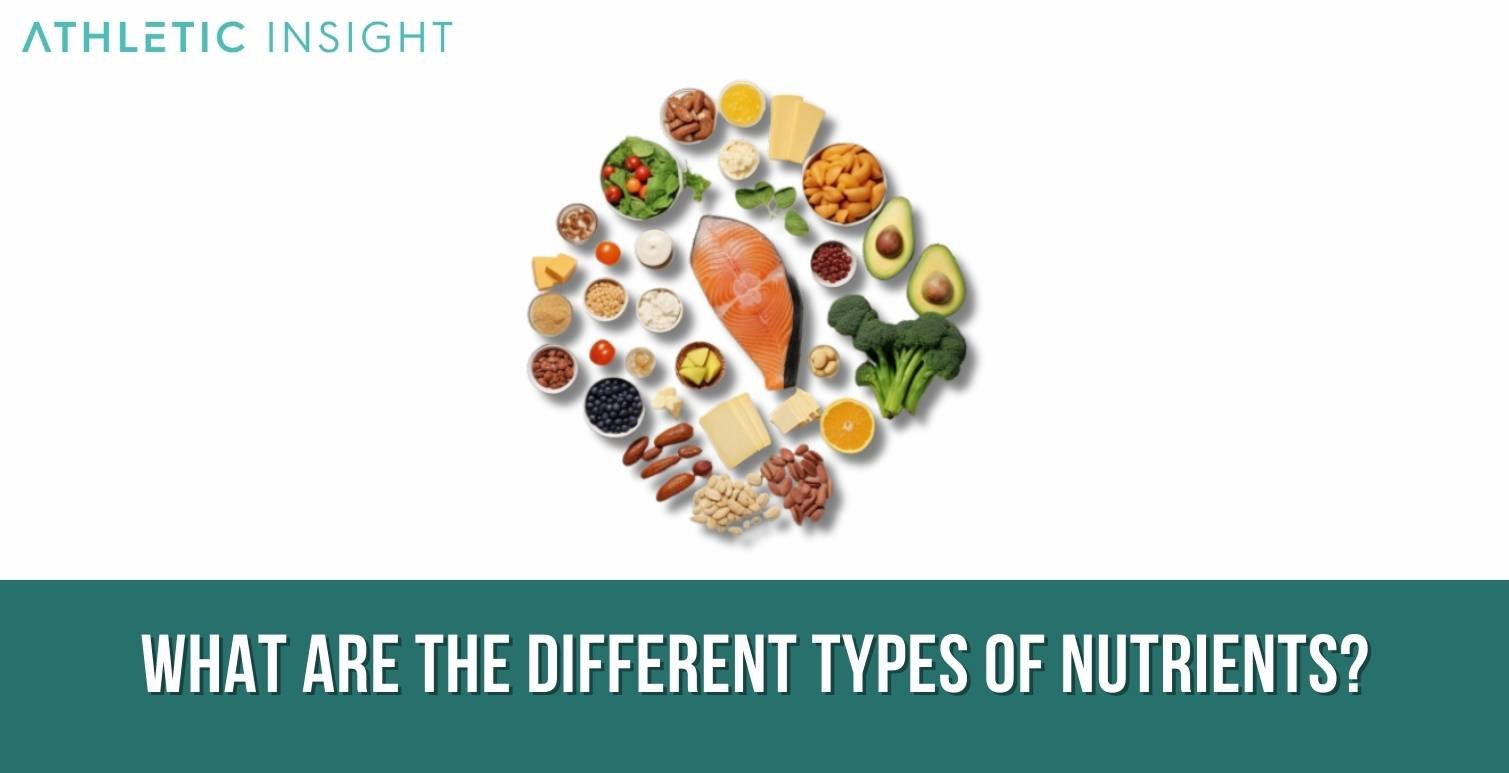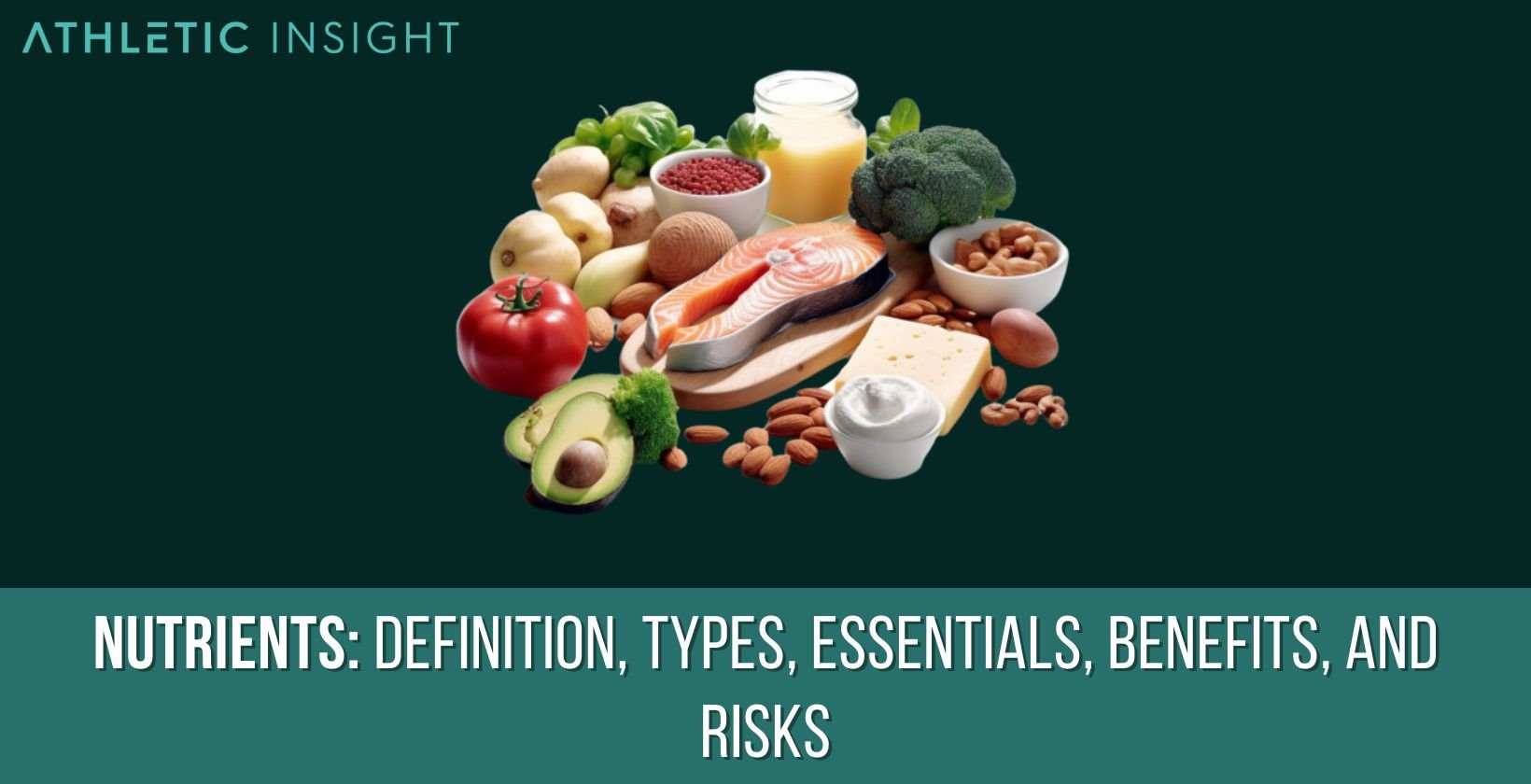Looking into the world of nutrients necessitates an exploration of a vast and interconnected topic. Nutrients, the substrates that fuel life, are the fundamental building blocks that sustain all forms of biological existence, from the smallest microorganisms to the most complex human beings. Understanding the nature of nutrients, their categorizations, their essentiality for life, and the roles they play in maintaining health and mitigating risks is a journey of discovery that illuminates the critical relationship between diet, health, and overall well-being.
What are Nutrients?
At their most basic, nutrients are the nourishing substances in food that the body needs for growth, repair, and normal functioning. They are the physiological fuel that powers the complex machinery of life. These vital substances serve multiple roles in the body’s growth, survival, and well-being. From the provision of energy to the facilitation of biochemical reactions, the functions of nutrients are as diverse as the nutrients themselves.

Expanding further, nutrients are intricately involved in countless physiological processes. They support the construction of tissues and cells, assist in the synthesis of DNA, facilitate enzymatic reactions, and balance the intricacies of the body’s metabolic functions. From the oxygen-transporting role of iron in hemoglobin to the energy-yielding function of carbohydrates, the roles and responsibilities of nutrients are deeply embedded in the body’s fundamental biological processes.
Why are Nutrients vital in human health?
The indispensability of nutrients to human health is unquestionable. They form the foundation upon which the edifice of health is constructed and maintained. Serving as the body’s essential fuel sources, structural materials, and functional and regulatory agents, nutrients are instrumental in sustaining life and promoting optimal health.
One cannot overstate the vast multitude of roles nutrients play in the body. They participate in cellular processes, build and repair tissues, support growth, aid in the immune function, and contribute to brain function. These biochemical heroes orchestrate an endless symphony of tasks that, in sum, ensure the body’s smooth operation. The human body, in all its complexity, would cease to function without the ceaseless support of these essential nutrients.
What are the different types of Nutrients?
Nutrients can be classified into two major categories: macronutrients and micronutrients. The distinction between these categories lies in the quantities required by the body. Macronutrients are needed in larger amounts, as they are primary sources of energy, while micronutrients, vital for various bodily functions, are required in smaller amounts.

Macronutrients include carbohydrates, proteins, and fats. Each macronutrient fulfills a unique role in the body. Carbohydrates act as the body’s primary energy source, proteins are crucial for growth and repair, and fats are vital for hormone production and nutrient absorption.
Micronutrients, on the other hand, include vitamins and minerals. These substances, required in minute amounts, play pivotal roles in various physiological functions. Vitamins support immune function, bone health, and cell division, while minerals are crucial for growth, bone health, fluid balance, and several other processes.
1. Macronutrients
Macronutrients constitute the major part of the diet and provide the body’s primary energy. These macronutrients encompass carbohydrates, proteins, and fats, each serving unique roles and contributing differently to health. Their functions, sources, and importance to health underscore the body’s dynamic nature and its constant need for energy and structural materials.
Carbohydrates, often deemed as the body’s primary energy source, play a significant role in brain function. Proteins, the building blocks of the body, contribute to growth, repair, and maintenance of body tissues. Fats, often misunderstood and wrongly vilified, are crucial for various functions, including insulation, protection of vital organs, and facilitating the absorption of fat-soluble vitamins.
2. Micronutrients
Micronutrients, though required in smaller amounts, play significant roles in human health. These micronutrients include vitamins and minerals. Vitamins are organic substances necessary for various metabolic processes, while minerals are inorganic elements utilized for a variety of bodily functions.
Vitamins can further be classified as either water-soluble or fat-soluble. Water-soluble vitamins, which include the B-complex vitamins and vitamin C, must be consumed regularly as they are not stored in the body. Fat-soluble vitamins, including vitamins A, D, E, and K, can be stored in the body’s fat reserves and used as needed.
Minerals, on the other hand, include major minerals like calcium and potassium, necessary for functions such as bone health and muscle function, and trace minerals like iron and zinc, needed in smaller amounts but just as crucial for health.
What are the essential Nutrients the body needs?
The human body requires a broad array of nutrients for optimal function. These essential nutrients cannot be synthesized by the body in sufficient quantities and must, therefore, be obtained from the diet. The essential nutrients encompass six broad categories: carbohydrates, vitamins, minerals, proteins, fats, and water.
- Carbohydrates
- Vitamins
- Minerals
- Proteins
- Fats
- Water
1. Carbohydrates
Carbohydrates, simple or complex sugars, are the body’s primary source of energy. They serve as the fuel that powers every activity, from the most mundane tasks to vigorous physical exertion. Carbohydrates can be found in foods like grains, fruits, vegetables, legumes, and dairy products. The recommended daily intake of carbohydrates for an average adult is about 130 grams.
In addition to providing energy, carbohydrates play a role in brain function, as the brain utilizes glucose, a form of carbohydrate, as its primary energy source. Consuming a variety of carbohydrate-rich foods, with an emphasis on complex carbohydrates like whole grains and fiber-rich fruits and vegetables, can support overall health and wellbeing.
2. Vitamins
Vitamins are organic compounds that facilitate numerous biochemical reactions. They aid in the conversion of food into energy, bolster the immune system, support growth and development, and aid in the synthesis of collagen, neurotransmitters, and hormones. Fruits, vegetables, dairy products, and lean meats are rich sources of various vitamins.
The recommended daily intake of vitamins varies by type and individual needs. For example, an average adult requires 90 mg of vitamin C, 600 IU of vitamin D, and 700 micrograms of vitamin A daily. Ensuring a diverse and colorful diet can help meet the body’s vitamin needs.
3. Minerals
Minerals are inorganic substances required for various physiological functions. They play crucial roles in bone health, fluid balance, cellular function, and various metabolic pathways. Foods such as lean meats, whole grains, fruits, vegetables, and dairy products are excellent sources of minerals.
The recommended daily intake of minerals, like vitamins, varies by type and individual needs. For example, an average adult requires 1000 mg of calcium, 8 mg of iron, and 4700 mg of potassium per day. A well-balanced diet comprising a variety of foods can help fulfill the body’s mineral requirements.
4. Proteins
Proteins, composed of amino acids, are often dubbed the body’s building blocks. They support growth, repair tissues, manufacture enzymes and hormones, and participate in immune functions. Proteins can be obtained from both animal and plant sources, including meats, dairy products, eggs, grains, legumes, and nuts. The recommended daily intake of protein for an average adult is 50 grams.
Beyond their structural role, proteins contribute to the regulation of many physiological processes. For example, enzymes, which are proteins, facilitate biochemical reactions, while hormone proteins regulate body functions like blood sugar control and metabolic rate.
5. Fats
Fats, or lipids, serve as a secondary source of energy, provide insulation, support brain health, and aid in the absorption of fat-soluble vitamins. They can be found in foods like oils, butter, avocado, nuts, seeds, and fatty fish. The recommended daily intake for fats is approximately 70 grams for an average adult.
While fats have often been vilified in the dietary world, it’s essential to differentiate between unhealthy and healthy fats. Unsaturated fats, including monounsaturated and polyunsaturated fats, are considered healthy fats that can benefit heart health, reduce inflammation, and provide other health benefits.
6. Water
Water, the most abundant nutrient in the human body, plays a crucial role in almost every vital function. It is involved in processes like digestion, absorption, transportation of nutrients, and excretion of waste products. While water doesn’t provide energy like carbohydrates, proteins, and fats, it is essential for life. The recommended daily intake of water is approximately 3.7 liters for men and 2.7 liters for women.
Given the body’s high water content, adequate hydration is paramount for maintaining physiological processes, regulating body temperature, and even supporting cognitive functions. Drinking sufficient water and consuming foods with high water content, such as fruits and vegetables, can support overall health and wellbeing.
How can Nutrients be Utilized in a Healthy Diet Plan?
Constructing a healthy diet plan necessitates a nuanced understanding of the role nutrients play in human health. It requires more than merely acknowledging the importance of eating a balanced diet; it requires a practical approach to include various nutrients in daily meals. A healthful diet emphasizes whole foods that provide a balance of essential nutrients tailored to an individual’s specific health needs, lifestyle, and dietary preferences.

To incorporate various nutrients into a diet plan, it is recommended to consume a variety of foods across all food groups. This strategy ensures a wide array of different nutrients, thus minimizing the risk of potential nutrient deficiencies. For instance, lean proteins, whole grains, fruits, vegetables, and healthy fats should all be part of a balanced diet.
Which Nutrient-dense Foods Should be Part of a Healthy Diet?
Nutrient-dense foods, those that provide a high quantity of nutrients relative to their calorie content, should form the cornerstone of a healthy diet. These foods include fruits and vegetables, lean proteins, whole grains, and healthy fats.
Fruits and vegetables are rich in vitamins, minerals, and dietary fiber, yet generally low in calories. Lean proteins, such as poultry, fish, and legumes, are excellent sources of essential amino acids and other nutrients. Whole grains provide dietary fiber and various essential nutrients such as B vitamins, iron, folate, selenium, potassium, and magnesium. Healthy fats, including those from avocados, nuts, seeds, and fatty fish, provide essential fatty acids and fat-soluble vitamins.
What is the Risk of a Nutrient-deficient Diet?
A diet deficient in essential nutrients carries numerous health risks. These can range from minor issues such as fatigue and weakened immune function to serious conditions such as osteoporosis and anemia.
Inadequate nutrient intake can lead to deficiency diseases, each associated with a lack of specific nutrients. For example, lack of vitamin C can result in scurvy, a deficiency in vitamin D can lead to rickets in children or osteomalacia in adults, and insufficient intake of dietary fiber can lead to digestive issues.
What are the Health Benefits of Nutrients?
A diverse intake of essential nutrients offers a multitude of health benefits. From energy provision to disease prevention, nutrients serve as the building blocks for the optimal functioning of our bodies.
- Growth and Development: Nutrients like proteins, vitamins, and minerals play a crucial role in the growth and development of individuals. Proteins, made up of amino acids, contribute to the growth and repair of tissues. Minerals like calcium and vitamin D are vital for bone health.
- Energy Provision: Macronutrients such as carbohydrates, proteins, and fats provide the energy required for various bodily functions. Carbohydrates are the body’s primary energy source, while fats provide a concentrated source of energy.
- Immune Function: Several nutrients, including vitamins A, C, D, E, zinc, and selenium, bolster immune function and aid in defending against illnesses.
- Brain Health: Omega-3 fatty acids, B-vitamins, and antioxidants support brain health and cognitive functions. Omega-3 fatty acids, particularly DHA, are crucial for brain function and development.
- Prevention of Diseases: A balanced intake of nutrients can help prevent various diseases. For instance, dietary fiber can help prevent digestive issues and heart disease. Adequate intake of antioxidants, found in fruits and vegetables, can help reduce the risk of chronic diseases.
- Metabolic Health: B-vitamins are crucial for various metabolic processes, including energy production and the creation and repair of DNA.
- Fluid Balance and Waste Removal: Water and electrolytes (sodium, potassium, and chloride) help maintain fluid balance, aid in nutrient transportation, and assist in waste removal from the body.
What are the Health Risks of Nutrients?
While nutrients are indispensable for maintaining good health, their overconsumption can lead to various health issues. Each nutrient has an established upper intake level, and exceeding this limit can trigger detrimental effects.
- Macronutrient Excess: Overconsumption of macronutrients, such as carbohydrates and fats, particularly in their refined forms, can lead to obesity, cardiovascular disease, type 2 diabetes, and certain types of cancer. Excessive protein intake, particularly from animal sources, may lead to kidney disease, cardiovascular disease, and certain cancers.
- Vitamin Overdose: Consuming excessively high amounts of vitamins, particularly fat-soluble vitamins like A, D, E, and K, can be toxic. Hypervitaminosis, or vitamin toxicity, can lead to a range of symptoms from nausea and diarrhea to more severe effects like kidney stones, hair loss, and even life-threatening conditions.
- Mineral Imbalance: An excess of certain minerals can be harmful. For example, high levels of sodium can lead to hypertension, heart disease, and stroke. Overconsumption of iron can cause hemochromatosis, a condition that can damage organs.
- Hydration Imbalance: While less common, overconsumption of water can lead to water intoxication or hyponatremia, a condition characterized by low sodium levels in the blood. On the other end, not consuming enough water can result in dehydration, leading to headaches, dry skin, and in severe cases, kidney problems.
- Micronutrient Interactions: Excessive intake of certain micronutrients can interfere with the absorption or metabolism of others. For instance, an excess of zinc can interfere with copper absorption, and high levels of vitamin E can interfere with vitamin K function.
These risks highlight the importance of a balanced diet that provides necessary nutrients without exceeding recommended limits. Nutrition should be personalized and take into account an individual’s health status, age, lifestyle, and other relevant factors.
Can consuming too much of certain Nutrients be harmful to the body?
Yes, excessive consumption of certain nutrients can indeed be harmful. It is crucial to maintain a balance and not exceed the recommended daily intake for any nutrient. For example, excessive protein intake can lead to kidney damage in people with kidney disease. Overconsumption of fats can contribute to weight gain and related health problems, while overconsumption of sodium can lead to hypertension. Therefore, it is crucial to follow a balanced diet that meets but does not greatly exceed the recommended dietary allowances for each nutrient.
What to know more about Nutrients?
A comprehensive understanding of nutrients necessitates delving deeper into their complexity, their interactions, and their role in overall health. Nutrients don’t work in isolation but often interact with each other. For example, Vitamin D aids in the absorption of calcium, and Vitamin C enhances iron absorption. Recognizing these interactions can help in planning a balanced diet and maximize nutrient absorption.
Another aspect worth considering is bioavailability – the degree to which a nutrient is absorbed and used by the body. Not all nutrients are equally bioavailable due to factors like the food source, preparation methods, and the presence of other dietary factors.
What are the Myths about Nutrients?
In the vast realm of nutrition, myths and misconceptions abound. Some common myths include the following.
- “All fats are bad”: While excessive intake of saturated and trans fats is harmful, monounsaturated and polyunsaturated fats are beneficial for heart health.
- “High-protein diets are the best for weight loss”: While protein-rich diets can aid weight loss, a balanced intake of all nutrients is necessary for overall health.
- “Micronutrients can make up for a poor diet”: While micronutrient supplements can help prevent deficiencies, they cannot replace a balanced, nutrient-dense diet.
- “Carbohydrates make you gain weight”: Not all carbohydrates are equal. While refined carbs can contribute to weight gain, whole grains, fruits, and vegetables are healthy sources of carbohydrates.
Is there a food that contains all the Nutrients?
No single food contains all the essential nutrients in the quantities needed by the body. That’s why a varied, balanced diet is necessary for health. Even nutrient-dense foods, like eggs or kale, don’t provide every single nutrient. That is why supplementation is often needed.
Are Nutrients and Nutrition the same?
No, nutrients and nutrition are not the same, though they are related. Nutrients refer to the individual components in foods that are necessary for our bodies, such as proteins, fats, vitamins, and minerals. Nutrition, on the other hand, is the science that interprets the nutrients and other substances in food concerning maintenance, growth, reproduction, health, and disease of an organism.
Does the body produce all of the nutrients it needs?
No, the body does not produce all the nutrients it needs. While it can produce some, such as certain fats and cholesterol, others, known as “essential nutrients,” must be obtained through diet. These include certain amino acids, fatty acids, vitamins, and minerals.
Does heating and processing food affect the Nutrients?
Yes, heating and processing food can affect its nutrient content. Some nutrients, like certain vitamins, can be sensitive to heat, light, and oxygen and can be lost during food preparation. Conversely, cooking can also make some nutrients more bioavailable. For instance, cooking tomatoes boosts the bioavailability of the antioxidant lycopene. Therefore, consuming a mix of raw and cooked foods can help maintain a balanced nutrient intake.



